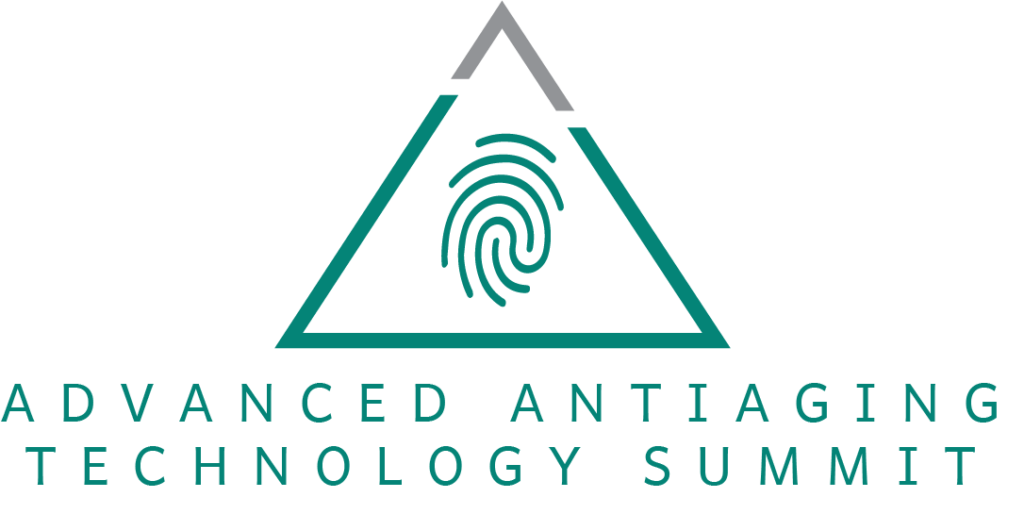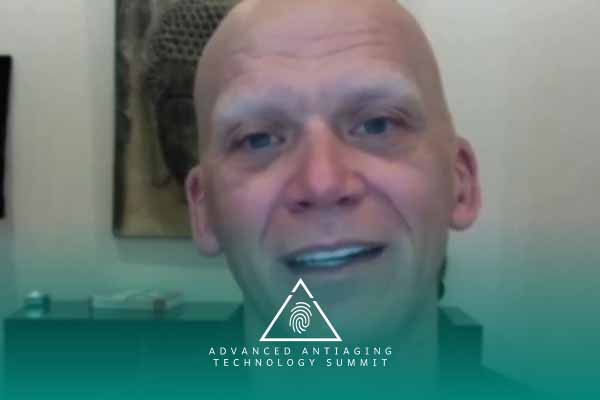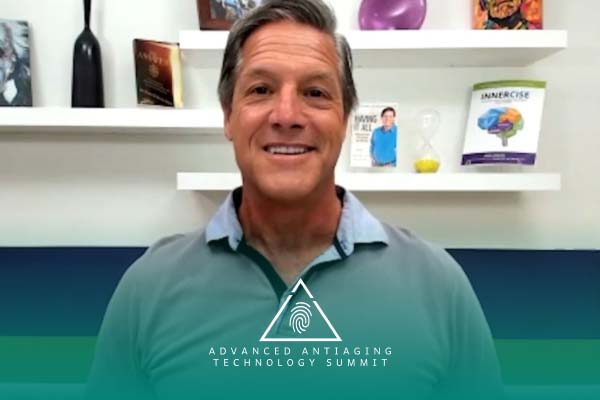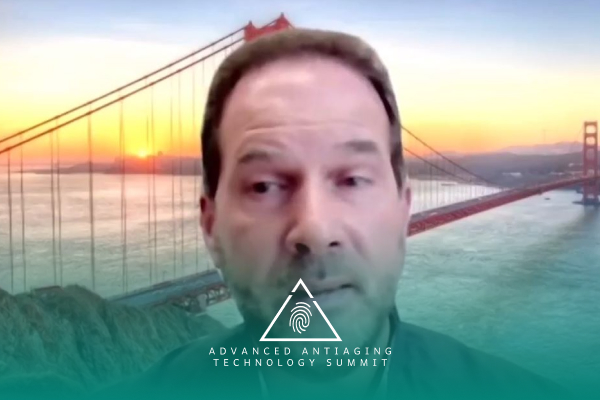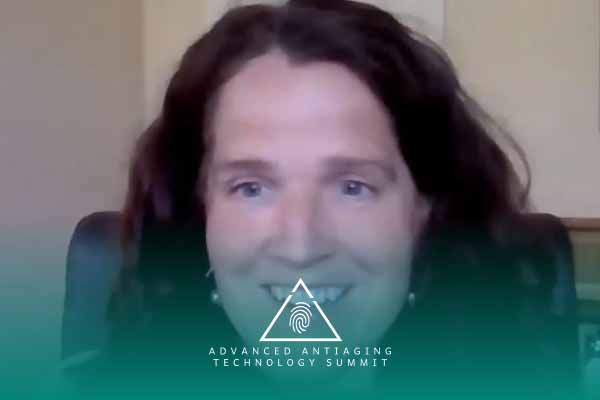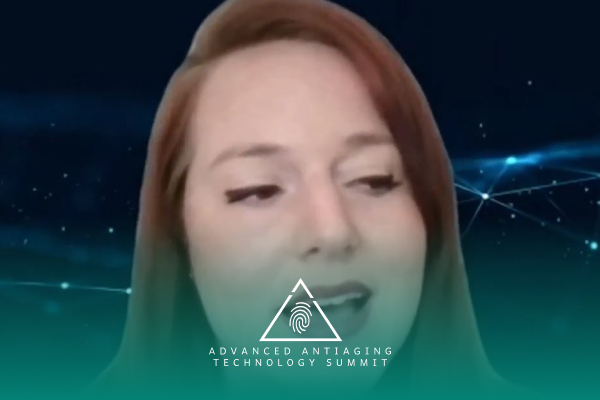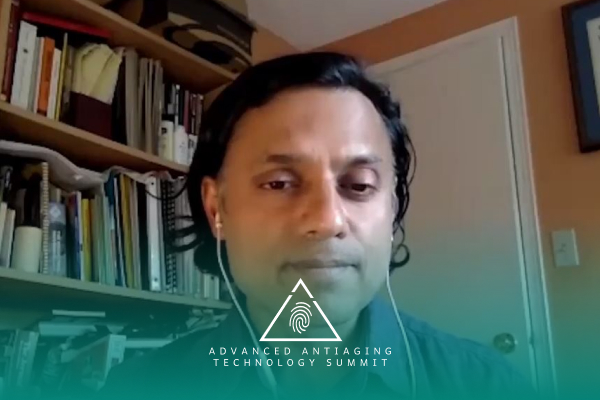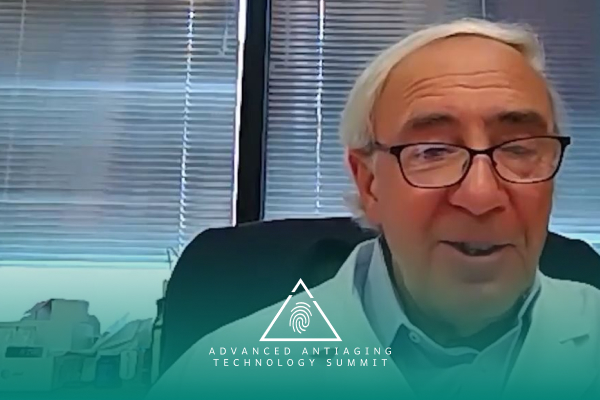Join the discussion below
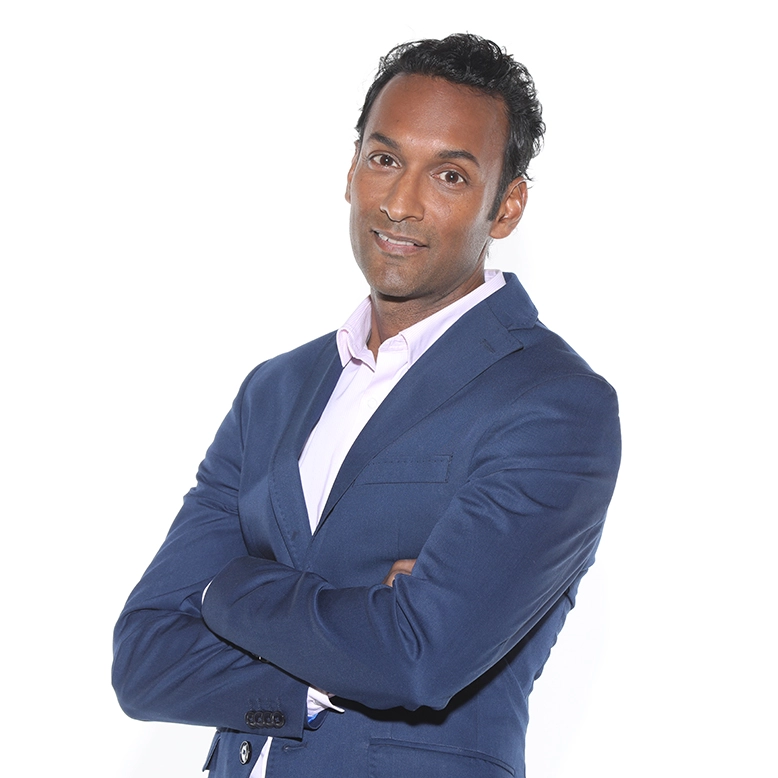
Dr. Goel is a medical physician and founder of Peak Human Labs. His mission is to speak knowledge of the latest cutting edge medical tools and science in order more people to live in a Peak mental, physical and spiritual state. You can learn more about his work at longevity.peakhuman.ca. Read More
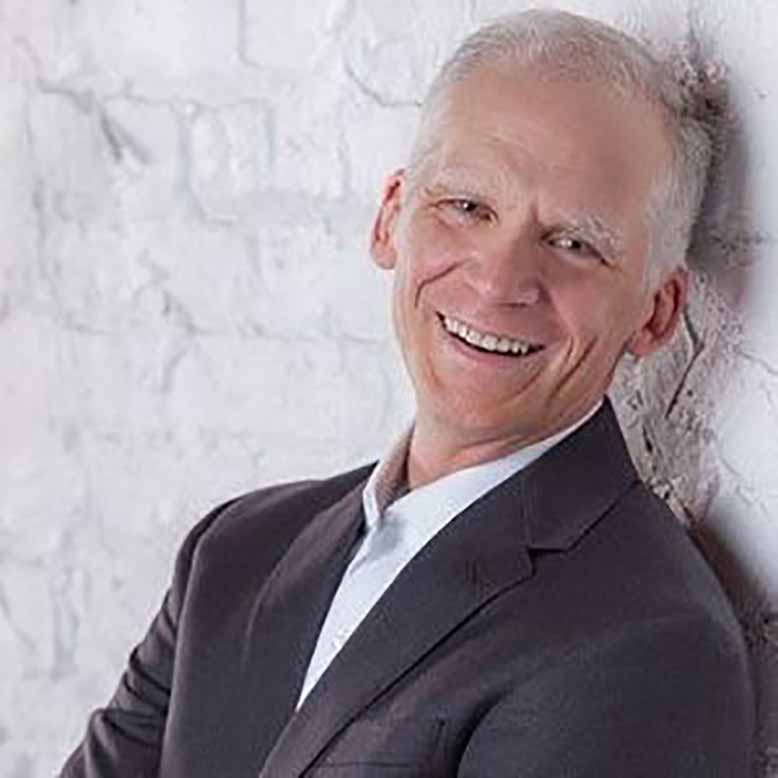
Dr. Dan Stickler is Medical Director at Neurohacker and Co-Founder and Chief Medical Officer of The Apeiron Center for Human Potential. He is the pioneer behind systems-based precision performance medicine, a new paradigm that redefines medicine from the old symptoms-based disease model to one of limitless peak performance in all... Read More
MicroRNA and Age Reprogramming: Dr. Daniel Stickler explores age rejuvenation strategies, underscoring the significance of microRNA in reprogramming the aging process.
Exosomes, Telomeres, and Glycan Age: Dr. Stickler discusses the role of exosomes, telomere testing, and glycan age measurement in his age management practice, highlighting the multifaceted nature of addressing age-related concerns.
COVID-19 and Spike Protein: In a brief discussion of COVID-19, Dr. Stickler mentions potential long-term effects and the role of the spike protein, shedding light on ongoing research in this area.
Related Topics
Age Rejuvenation, Aging, Body Optimization, Chemicals, Community Love, Complexity And Performance Medicine, Consciousness, Deficiency Mindset, Experiential Life, Financial Health, Flow State, Genetics, Gratitude, Human Performance, Individual Assessments, Love And Relationships, Love Deficiency, Medications, Mind Health, Mindset, Peak Experiences, Peptides, Personalized Health, Psychophysiologic Stress Profiles, Purpose, Rejuvenation, Relationship Love, Research, Self-love, TechnologySanjeev Goel, MD, FCFP (PC), CAFCI
Hi everyone. I’m Dr. Sanjeev Goel and you’re listening to the Advanced AntiAging and Technology Summit. And today I have Dr. Daniel Stickler with me. How are you Daniel?
Daniel Stickler, M.D.
I’m doing great. How are you doing?
Sanjeev Goel, MD, FCFP (PC), CAFCI
Thank you for joining me for this hour. I’m really honored to have you as a guest maybe just for the listeners. I’d love to just, if you could just give a little background on the type of practice you have and you have such a wide varied number of things that you’re doing as a, as an MD but I think that’d be really useful for our listeners, if you could.
Daniel Stickler, M.D.
So I would say the best way to describe what we do is complexity and performance medicine. So we’re, we take a complexity systems approach to individual assessments and planning and we just use tons of data. I mean, data is the king when it comes to identifying personalized health. And we look at, we don’t look from a disease model. We look from a model of how can we advance this person into higher grades of human performance? And it’s not like, it’s not like it’s you have to be an athlete or anything like that. I mean, we take people that, you know are even on the sixth side of healthy and they progress forward as well, but they don’t end at the point where they say, oh, I’m healthy. You know it’s an ongoing process that we can constantly upgrade people into new and exciting ways to live.
Sanjeev Goel, MD, FCFP (PC), CAFCI
So I know that the whole kind of brand I would say, if your, of everything that you’re doing
is called a peer on, which means limit limitless life in Greek. So it sounds like this you’re trying to really bring people to their ties potential, is that right?
Daniel Stickler, M.D.
Yeah.
Sanjeev Goel, MD, FCFP (PC), CAFCI
And science and precision.
Daniel Stickler, M.D.
What we say now is it’s. We help people to actualize a life of excellence and there’s many ways to achieve that. But that’s what people are looking for. You know, a life that is worth living, essentially you know, how do we get there? What are the steps to create that in each individual? And that’s behind our entire ecosystem our media company, our genetic company our supplement store, all of it.
Sanjeev Goel, MD, FCFP (PC), CAFCI
How should a person who is, let’s say, listen to you now tackle this issue, like saying you’re saying limit living to your highest life. And what are the categories that they should start to think about so they can, you know, so they can try to figure out.
Daniel Stickler, M.D.
Yeah, so we have five paths that we focus on. First is the body. And the body is our vehicle of consciousness in this expression. And you want a body that will come online and do what your brain is desiring it to do. So you don’t want the body to limit you in that regard. You know, I say, it’s just like whether you wanna drive a Ferrari or you wanna drive a Jeep, you know, that doesn’t matter the choice you make but that’s when you make that choice. That’s what you’ve got to focus on optimizing body. And we do that through medications, peptides, research, chemicals technology pieces that we utilize and progress people through higher and higher aspects of their potential. And the second piece is the mind and aspects of like the, we do QAG map brain mapping on everybody.
And we do psychophysiologic stress profiles on everybody but mind is more around the concept of how you think and what your mindset is. Maslow and, you know, let me tell you these five paths that we have, they were informed by the clients that we worked with for the past 20 years. And these were athletes, they were CEOs they were entrepreneurs, we’ve got some billionaires we’ve got five billionaires that are our clients. And we got to learn really what was the magic formula that they were all looking for. And we found deficiencies in most of them that we addressed but the mind piece is really important and Maslow even address this.
And it’s like, okay, you know you can’t have deficiency or you can’t tap into potential. And what he meant by deficiency was if there’s a deficiency in, you know, health and safety if there’s a deficiency in love and relationships if there’s a deficiency in financial and in community as far as recognition among peers. What we’ve encountered is that almost everybody that comes to us has some sort of deficiency, oh, I don’t have enough money.
When I make enough money. I’ll do this. I don’t have a love in my life, or I don’t even love myself as a, is another one that we hear. So we work with them to really retrospect what they’re seeing as deficiencies. And it was a big thing for a lot of our clients to actually kind of get rid of that deficiency mindset, because you don’t think about I mean, you know, if you have a man that’s starving he’s not gonna think of anything else, but finding food he’s not gonna spend the time in the arts or philosophy or exploring just doesn’t happen because that deficiency is there. And that happens with the other ones too. One of the most common ones we see is money. And what I’ve found it’s really strange is that it’s like, it’s like 700 million net worth seems to be the cutoff to say I don’t mean money is not an issue for me.
And they don’t see some deficiency in it below that though. You know, I see people in the 500 million net worth value range that are still thinking they need more and breaking that is a big deal. The third area is purpose finding a purpose, you know does your life matter? I mean, what are you doing? And it doesn’t have to be something. Everybody thinks you have to have this lifelong purpose. And then the entrepreneurs will always fill it fill out the, the fill in the blank form of when I get this or I help people to do X so they can Y and that’s just not the way purpose works.
Purpose needs to be something that is some contribution to humanity in some way. And we use the Japanese eeky guy to have a lot of people work through and find purpose. And sometimes they change, you know, you’re not locked into a purpose that your whole life you’re gonna go through. So we work with that. The fourth thing is peak experiences. This is something that I was shocked because I mean, I I experienced almost every day but it’s also the fact that I look for. It’s like when you’re buying a new car and all of a sudden you’re seeing all of that car everywhere, you look all is the same way. And gratitude is the same way. And flow state is the same way.
These are all peak experiences and we should be experiencing them on a daily basis. And we ask our clients, you know when was the last time you experienced all? And some of them it’s years ago and life is about, you know, more being, it’s more being in life and experiencing life to its fullest extent. And I mean, this was the deal with philosophers from the time of Plato and Aristotle who contemplated you know, what is a life well lived? And it progressed through one of my favorite philosophers, Nicha. I was a philosophy minor and undergraduate and he was the one I focused on. And he saw the potential of every man to be the Uber Manchar over man. And he gets misattributed to being a nihilist which he absolutely was not.
But then you have the early 1900s you have who was a Jesuit priest to explore the same thing. And he came up with the fact that we need more being in life. We need to be more experiential with life and then Maslow also address the same issue. So, you know, those peak experiences are really important. I mean, when you’re think back on your childhood, I mean do you remember gifts that you got, or do you remember trips and experiences that you had with your parents? And that’s what you remember. And we forget that and we forget how important those things are for us. And the last thing is love. Love is a major deficiency in a lot of people, and it can be a matter of self-love.
It can be a matter of community love. It can be a matter of relationship love, but most of the people we deal with have learned really well how to intellectualize love and not feel it. And we help them to open up to actually feel love for the first time, which is a beautiful side. I mean, I was there three years ago and cracked open and just had some really amazing experiences. I fell in love with my wife for the second time. And, you know, our relationship has just blossomed unbelievably since that time. I mean, most people would think after 10 years the relationships pretty much set where it’s gonna go but we actually were able to take it to amazing heights with that. And so those are the five paths that we work with. So we work with a lot of the psychosocial along with the medical and the body piece and really consciousness.
Sanjeev Goel, MD, FCFP (PC), CAFCI
Wow. Okay. Yeah. That’s, pretty awesome. How, I’m just so curious about the before we get into some of the other science and body stuff but I’d be interested to talk about the love part. Like, are these specific types of exercises that you did to how does one open up love?
Daniel Stickler, M.D.
It’s a combination of things. I mean, I was first introduced to something called an empathigin, which I won’t go into what it was, but that was the real hard opener. And then I later went through a watch Houma ceremony, which is San Pedro. And in that ceremony I experienced empathy for the first time. I was a surgeon for the first 10 years of my my career in medicine general and vascular surgeon. And you can’t have much empathy while you’re operating on somebody that just, or taking trauma calls anything like that, you’re just not, it’s not healthy and it’s not functional to experience empathy.
And don’t know if I shut it off then or I really never had it in the first place. And that’s why I chose surgery, but that’s the way it went. And so I could intellectualize empathy. I could say, yes, I have compassion for you but I have no need to feel what you feel. And in the ceremony I had this this profound sadness that hit me, like, I mean it was like, it’s like every bit of empathy I had suppressed my entire life got dumped on me from a dump truck and I had to feel it all. And it was so sad, but so beautiful. And then afterwards, I suddenly could have empathy. And my wife was thrilled by that. My, our friends, they they’ve told me in the last couple of years, they’re like, you’ve really changed a lot.
Sanjeev Goel, MD, FCFP (PC), CAFCI
Wow.
Daniel Stickler, M.D.
And, I think that’s what really prompted it for us.
Sanjeev Goel, MD, FCFP (PC), CAFCI
I noticed that you didn’t put spiritual, but it looks like spiritual isn’t there peak experiences like that sounds like that’s are connecting with..
Daniel Stickler, M.D.
Very individualized piece. And, you know, you could actually classify the spiritual in both a peak experience and love, but we don’t perspect anything under any particular specific person or thing or religion or whatever it is as a is a target from which consciousness arises. I mean, you know, we feel like pretty much all of us are God. And, you know, when you become one with that and then you become the unity consciousness with everything and you can’t stay there but you can glimpse that you can’t function in this world if you’re in that state all the time but you glimpse it and you understand it or at least feel it, you don’t necessarily understand it but that that’s a big deal. And we work a lot with people to get into that state.
Sanjeev Goel, MD, FCFP (PC), CAFCI
Wow. So you know, this, you know, we’re focusing most on anti aging and this summit, that’d be really interested to understand your, what is your, you know your feeling about what can people do to, you know slow down aging or potentially reverse aging. I’d love to hear what your thoughts are on that. What’s your understanding?
Daniel Stickler, M.D.
So I’ve been in the aging industry, we prefer terming at age reversal or age rejuvenation is our primary topic area that we focus on. And the thing is, it’s not about, you know, immortality what I’ve found is that a lot of people in the anti-aging or age rejuvenation industry, whether they’d be researchers or philanthropists that are investing in it they’re living in fear. They’re afraid of dying. And while they have that fear of dying and that’s a deficiency and they will not live. I mean, the philosophers used to say, when they went to the temple at Ellucian, they would say you would go in and you would leave the temple knowing you would never die.
And it’s because they experienced the ego death while they were there. And that’s really what it is. I mean, you know, the ego wants to hold on to the the I, and the, desire to continue on as this, but it’s without the recognition that consciousness actually resides outside of the body. And I’ve seen enough evidence and especially in the quantum scientific space talk to a lot of researchers in that area. And I was surprised at the number of them that were of the belief that consciousness arises from outside of the body, not as an empathy phenomenon the neurons of the brain but getting back to the age, rejuvenation, I mean we have one of the, probably most advanced age rejuvenation protocols that we use but the idea is we don’t wanna give you more years.
We wanna give you more life in your years and getting in that sense, extend life, living life optimal life peak experience life for as long as possible. And that has been our target. And the idea is we rejuvenate the body. We rejuvenate the mind. I mean it’s essentially age rejuvenation is rejuvenate rejuvenation of body, the vehicle, but there are so many other aspects. We work with everything when people come in. And in fact, one of our primary metrics is quality of life inventory. And we’re the most proud of how we do on the quality of life inventory from year to year. I mean, constant movement and in a greater and greater quality of life that the clients are testing on.
So, I mean, we use, I mean, we send alytic lytic therapies. We use exosomes, we use hormonal rejuvenation. We use peptides to rejuvenate different aspects of the system, but the medications out there I mean, they’re pretty, pretty spectacular. I mean, I did a talk on age rejuvenation 2014 and at the same conference I came back and presented this year, actually this the end of this last year. And I was talking about all of the theoretical the nine hallmarks of aging and the and all the potentials that we have to fix it. And pretty much taken care of where we’ve got interventions for about six of the nine right now. But, you know, people are looking for this magic pill for age reversal or anti-aging, and that doesn’t exist. That’s not the way the human system works. Aging. A lot of people say aging is a disease but it’s not a disease. It’s a constellation of processes that net progress along.
You know, they’re not necessarily in an interrelated in a direct sense, but aging has a lot more to do than just rejuvenating the body. And so we make sure that when people come to us, they understand that we’re gonna be working with everything. And we’re pretty intensive with our follow-ups with them. We follow up every client once a month on a video call we monitor them all the time with biometric monitors. Like the garment watch is what we give all of our clients. And I can log in. I just had a client this past weekend and they got COVID and we could see that he was actually getting sick about two days before although he didn’t feel anything but his metrics showed us that he was.
Sanjeev Goel, MD, FCFP (PC), CAFCI
Which device are you using?
Daniel Stickler, M.D.
Well, the one we give our clients is the Garment Phoenix six, this one, and some of them won’t wear it. I’ve got a couple that wear the aura ring, which is okay. I’ve got one that wears a bias strap, which is also okay. But the depth of data we get is much greater with the Garmin. And, you know, we rely on the Garmin because it’s the dynamic of it. It’s not, you know any absolute value that’s of importance.
Sanjeev Goel, MD, FCFP (PC), CAFCI
So I was just cutting out a bit. It’s called a garment. Sorry.
Daniel Stickler, M.D.
The garment. Yeah, we give our clients the garment Phoenix six watch that’s. Yeah.
Sanjeev Goel, MD, FCFP (PC), CAFCI
Oh, wow. Okay. Very interesting endevour. I’ve never heard of that. Does that like HRV as well as an HRV?
Daniel Stickler, M.D.
It does, but it’s a HRV through pulse plus plus model graphy. So it’s not quite as accurate but they used first beat technology to do it. And first beat is probably the top the top curator of this biometric technology. A lot of companies use their algorithms but we also, I mean, we also use the first speed bodyguard which is an two Patty EKG with a wire between it. And we have our clients wear it for three days and we log we have them log everything they do. I ate then I went to bed that time. I worked out at this time with the weight training. And so we get essentially 300,000 heartbeats along with the HRV to see what’s happened to them over the three-day period and with each activity, they do.
Sanjeev Goel, MD, FCFP (PC), CAFCI
I, you know, I noticed that you’re, you have quite a expertise in epigenetics. And, so I’m just wondering what, how are you are you monitoring these patients or the clients at that level as well? And what are your thoughts about what are the best measures of looking at aging?
Daniel Stickler, M.D.
Yeah, we we’ve used epigenetic age as one of the criteria that we look at but we’ve also used glycan age. We use brainwave patterns to determine age. We use body composition and muscle density to work with aging. So we don’t have one specific metric but the one that the clients focus on is really the epigenetic age and full disclosure I’m on the scientific board of true diagnostics but it truly is one of the ones that we always go to. One of the main reasons too, is that they not only do they have the largest epigenetic chip which doesn’t mean anything. I mean, we only know so much about epigenetics right now, but they’re using it to do machine learning over time by asking people who sign up a lot of questions.
And so we’re able to start really doing research on that which is really cool. And when we give them the reports when they come out, so their data is contributing to helping to further them along. But what I was saying, we used to do immune aging and we did it through T-cells CD four CD, eight CD, 95s. And we did that through the pathology lab at UCLA. And it was not an available test. It was available for research. So we could, use it that way but that was the way that we determined immunologic age. Now, true diagnostics actually has that. They call it the extrinsic aging versus the intrinsic aging. And so everybody does extrinsic aging across the board on epigenetics, but this is the only company I know of. That’s doing the extrinsic aging of the immune system as well.
Sanjeev Goel, MD, FCFP (PC), CAFCI
Yeah, I, so, yeah, I’m just let’s chat about that. So I’ve noticed that a lot of my clients ex extrinsic age is significantly lower. So if it’s, is this, if it’s lower across the board then is it just not the, maybe the level is not correct? Cause how can it be lower than for everybody? Or if there are are there people with higher levels of extrinsic age?
Daniel Stickler, M.D.
I’ve had a couple of people, but again, you know I deal with mostly high-performers. So we typically have pretty, pretty healthy people. Although seems like Ironman triathletes have a very advanced age when it comes to epigenetic age but that is also because some of the markers in there aging are actually beneficial and you get those with exercise. And so they it’s like the epigenetics that predispose people to heart disease or predisposed people to cancers. They’re actually used as an epigenetic age. And, you know, if you’re worse on those, you’re actually better on aging for some reason. But when it comes to the highly intensive athletes they tend to be marked as older based on that. That’s why I really prefer extrinsic age overall. That’s what I’ve been using is as my yearly metric and most of my clients. And I just, you know, the intrinsic age even though it’s more consistent with the age of the person in general, it’s the immunologic age which I think is probably the most important aspect of of longevity.
Sanjeev Goel, MD, FCFP (PC), CAFCI
So you’re suggesting the extrinsic age is more important. That’s what you’re monitoring?
Daniel Stickler, M.D.
Yeah
Sanjeev Goel, MD, FCFP (PC), CAFCI
Is that right?
And then I’ve had a lot of patients, you know checking with the obesity, they have an obesity score. They look at, I think four different genes methylation of that. And almost everybody, like there are three out of four or four to four and the higher giving a higher risk of obesity. Is that, what are you seeing with your patients and why is that?
Daniel Stickler, M.D.
Yeah, I think they’re still trying to fine tune that obesity risk one, because I’ve seen a lot of people that were nowhere close to obesity that had that. And you know, it is epigenetics but we’re also only looking at a small number of methylation points and, you know are those methylation points throughout the body? Are they just in the white cells that we’re gathering or this skin cells that we’re gathering because every cell type in the body has a different epigenome. There’s some that are consistent patterns especially when it comes to like the, the DNA the strand methylation versus histone modifications.
I mean, epigenetics incorporates so many different things. I mean, it’s, incredible how extensive and complex the system of epigenetics are. But, you know, we teach our clients on epigenetics. So we do a genetic read for them, and, you know then the genetic creative they may have an MTHFR and APOE E whatever it is. But we also emphasize the fact that, you know, that’s they’re not mutations, they’re variants that have occurred to give you benefit in a certain environment. And you’re no longer in that ancestral environment that they were selected in. And so you just adjust lifestyle and then we know ways that through epigenetics, we can up-regulate or down-regulate certain genes even turn some off. And it’s really a process where you have to learn the research of what they’re showing in epigenetics cause we don’t have a test yet that will give us you know, those epigenetics plus we’d have to test every cell type to understand that.
But when you look at the research, I mean we see pretty consistent findings, just like fish oil fish oil is a classic one. You know, people say, oh, should I take it? Or should I not take it? The same week we get an article that says, it’s good for you as well as bad for you. And this is what most people miss is there when we do human nutritional studies, that is such a diversity of organisms that are being studied in that. I mean, and even like what’s the best diet and you can’t give an answer to that. I mean, you know, unless you’re, westering away in a dungeon, you know, 700 people living in the same environment and then feeding them the exact same food over that time period versus a control group.
And it’s just not possible. And even then, it’s not gonna be close. I mean, the nutrition studies that are done in rats and mice are usually done in monoclonal lines. These are genetically identical mice that are raised in an identical laboratory environment. So they get their results there and then saying, well, you know, a mouse is not a human is a big aspect of understanding research. So what we focus on is looking at the research in epigenetics that is done on humans and analyzes outcomes to predict gene expression changes not necessarily to go in and target. Although there are some that actually look right at the epigenetics of different organ systems and they see what’s happening like fish oil, you know you have massive upregulation of all these metabolic beneficial, metabolic genes and downregulation of a lot of inflammatory genes. So I tell people, I say, focus on the epigenetics of this and not on these crazy research studies on this diverse population.
Sanjeev Goel, MD, FCFP (PC), CAFCI
You mentioned glycan age. I’d like to hear your thoughts on that and how much use are you seeing that? Are you seeing people have different changes with their glycan age based on their lifestyle changes?
Daniel Stickler, M.D.
Yeah. You know, I haven’t we just added glycan age last year so we haven’t even had a full year of followup with it yet. It looks good from the research and the company glycan age they report a lot of stuff from now. I think they did something with the British biobank or the UK biobank was where they found the correlated most of their data. But what I’ve found is the glycan age is significantly lower than epigenetic age in people. I mean, it can be like a 49 year old that’s 20 years old by glycan age. So I’m not sure of the relevance yet. We’re still, we do it, but we’re also putting it together with everything else that are markers of aging and seeing is it an accurate measure or is it consistent
Sanjeev Goel, MD, FCFP (PC), CAFCI
[Sanjeev] Right. Right, right. And are you doing any type of telomere testing and what’s your thoughts about telomere tests?
Daniel Stickler, M.D.
We get asked that a lot and I..
I used to use life length just because I like something that gives the shortest telomeres. I can remember I think it was Bill Andrews that said we are a room full of dynamite you don’t wanna know the average length of the fuses. You wanna know the ones that have the shortest slang and that always hit home with me. And so I’ve always if somebody requests telomere testing, I’ve always used Lifelink just because they do get that shortest grouping. But we’re finding now that telomeres may be more of a consequence of aging in some cases. Even though some of the research suggests that it isn’t.
There’s a big contingent of the age rejuvenation group that is looking at telomeres as not quite as valuable as we thought. And, you know, it’s like, it’s a marker of aging. It’s shows aging. So it’s like having gray hair, you know, that’s a marker but it’s not causing aging. So we’re not sure right now. I mean, there’s some cells in the body that never lose telomere length. There’s some that will maintain telomere length throughout their life. Like the gut cells. I mean, they just continue to add to their telomeres as they continue to provide, but there are others that the telomere length is rate limiting for them.
Sanjeev Goel, MD, FCFP (PC), CAFCI
And have you used a TA 65 in your practice or what’s your thoughts?
Daniel Stickler, M.D.
I tried TA 65 myself and my wife for two years and we just didn’t find much of a objective difference in in testing over that timeframe.
Sanjeev Goel, MD, FCFP (PC), CAFCI
Okay.
Daniel Stickler, M.D.
So we just stopped that too much.
Sanjeev Goel, MD, FCFP (PC), CAFCI
I just saw a study that came up, that there was a change in and the number of CD eight CD 28 cells with people using T 65. But…
Daniel Stickler, M.D.
Yeah, and that’s potentially valuable and it’s going to be a large enough study, you know cause these studies cracked me up with the way they summarize things. There was a study that came out not too long ago about NMN and that high dose NMN was leading to greater insulin sensitivity, but that was the statement. But this was a study with like 11 participants that were taking the drug and then 12 controls. So it was not a big group and it was post-menopausal women I think that were diabetic. And there was some other criteria which was just, I mean it’s just a ridiculous criteria, but then you look at and yes, it was statistically significant but was it all that significant altogether? I mean, it was a 10 week study and yet most of the markers of aging didn’t change other than this insulin sensitivity and weight should be enough to show if insulin sensitive was improving we would see changes in other parameters within the body. And it wasn’t seen. So, you know, it’s a sensational headline. Everybody gets excited about starts taking NMN, but not understanding what this study actually was measuring.
Sanjeev Goel, MD, FCFP (PC), CAFCI
Right. You mentioned that you use exosomes in your practice what type of success or change do you see? Like do you see changes in immune markers? Are you measuring those types of things or epigenetic aging?
Daniel Stickler, M.D.
We don’t see anything in particular. I mean, we don’t have something that we can measure to say that it’s making a difference. Cause it’s part of our whole program. I teach biologics for age management medical group and I do a lot of research on it. And I’ve just been more impressed with the exosomes because I think what’s happening is when you get stem cells the stem cells are secreting the exosomes is where the benefit comes from.
So I think going straight to the exosomes which are cell-free and will circulate around the entire body, you can give it intravenous you can give it subcutaneous and rejuvenate scan. I mean, there’s a ton of plastic surgeons that are injecting exosomes all around the face and getting really amazing results. But again, it’s not one thing. I mean, you know, we use like oral rapamycin along with rapamycin cream on the face. And then in the morning they use GAK copper on the face along with all these other things that we’re doing. So we can’t really attribute one in particular to creating the outcome.
Sanjeev Goel, MD, FCFP (PC), CAFCI
It’s interesting. I was just curious about the exome, your thoughts about how do we know that the growth factors are being secreted or, you know, through these that are in the exosomes are the same in different exosomes. Like how does one out of the determine that these are helpful growth factors versus not helpful.
Daniel Stickler, M.D.
Health goals is to get useful exosomes. So the company we use, they derive the exosomes from a fertility clinic says amnionic fluid exosomes. So you get a little bit of the child’s a little bit of the mothers in the mix. And so typically the people who come to me are much older than than those exosomes and exosomes really they carry the micro RNA is the MRNs, all of the stuff that that tell the body to remain that we’re young and healthy. You know, these micro RNA that circulate around the body are just fascinating. It’s my favorite area of research right now, how they actually change.
They there’s a company out of Korea that just patented a a micro RNA that can rejuvenate beta cells in the pancreas of type one diabetics. And that seems pretty impressive. And they’re looking at doing it through M RNA injections. So people are really concerned about the COVID vaccine and they’re like, it’s untested but you know, we’ve been injecting messenger RNA for since the late nineties in people. And we know how they work pretty well. So I wasn’t concerned I didn’t want to get the COVID vaccine but I had so many of my clients that were paranoid and then they would ask me and I’d say, yeah I haven’t gotten, and I just don’t think I need it. And they were like, oh, so you don’t believe in it. And I was like, no, not that at all. So I said, I’m just gonna have to go get the Moderna so I can tell people that I took it even though I didn’t really think I needed to, but it I felt it was safe enough. And I said, I’m gonna go ahead and do it.
Sanjeev Goel, MD, FCFP (PC), CAFCI
Right. Right. Exactly. Yeah. I’ve had one of the Pfizer doses so far as well. Do you think that there’s this just quickly just shifting to COVID do you think they, you know, people are seeing this kind of a long COVID and you know perhaps it’s there’s prolonged inflammation happening do you think there’s something specific to COVID or there’s just, this has happens in many viral infections and this is maybe we’re just more looking at COVID.
Daniel Stickler, M.D.
Yeah. Josh Middledorf is a good friend of mine and he’s just a brilliant writer and researcher. And he posted a blog just the other day where he I mean, he’s a little bit on the conspiracy side that it was a lab made virus and he has some pretty good, you know evidence to what he’s saying based on the virus itself. But one of the going theories is that the spike protein itself may be the culprit in a lot of the, COVID not necessarily the Corona virus but the spike protein on it. And the spike protein gets cleaved from it.
There’s some people thinking that this may be actually like a prion disease and that’s what’s causing some of the chronic problems with it. I haven’t seen, I’ve had a lot of clients that have had COVID and I haven’t seen anybody get into that long COVID. I mean, I’ve had people that had respiratory issues for about three months, but beyond that, haven’t seen the neurologic issues that people are reporting. But I think a lot of people are also attributing symptoms from other things as long COVID. And right now we don’t have a diagnostic criteria for it. So there’s a lot of people talking about it but does it really exist? And what does it look like if it does exist? It’s just unknown.
Sanjeev Goel, MD, FCFP (PC), CAFCI
Do you think that the vaccine could prevent, I mean let’s say any, like, do you think any activation from immune system, is it the exact same from the vaccine as it is from actual COVID? Or do you think that the COVID…
Daniel Stickler, M.D.
It’s activations I mean I just took the vaccine a couple of weeks ago and right after I took it, we got test kits for the IGG and IGM and my wife who chose not to take the vaccine I tested her and she was positive for both IGG and IGM. We were trying to figure out and we’re together 24/7 So if she had, I’ve had to have had it. And we’re trying to I’m trying to figure out when it was, we had symptoms. And, you know I could recall a day when we were moving on an office and and I just felt severe fatigue low-grade fever but it lasted a day. And that was it. And it was like, that’s the only thing I can even come close to saying was symptomatic of anything.
Sanjeev Goel, MD, FCFP (PC), CAFCI
Interesting. You were mentioning that your interest, your one of your big interests is micro RNA. I’d love to just hear from you. What are the things that are just making you excited about this whole field? I mean, you’re involved in so many different aspects of age rejuvenations so if you could maybe just take take us down what some of those
Daniel Stickler, M.D.
I mean, the age rejuvenation itself, the exponential knowledge that we’re getting is unreal. I mean, I’ve never seen stuff accelerate at the rate that it’s doing here. I mean, it’s, like the internet in the late nineties progression that occurred. You’re seeing this in age rejuvenation. Unfortunately, most of the governments are still focused on aging in place. Like the national Institute on aging in the US. Their focus is how do we help seniors to age in place? And we’re like, you know, forget that let’s look at how we can rejuvenate them so that they don’t have to age in place. Let’s put some money towards that. But I think it’s less than 1% of the NIH budget is funding age rejuvenation studies. And so all the age rejuvenation studies are being funded by the the millionaires and billionaires out there that are interested in the outcomes of it.
I mean, they’re not looking for a big payoff necessarily but they want to be not only involved with it but be the first first to get the things that are the best on the market. But, you know, micron is, I think is going to be a key area. And, you know, we know all about the Yamanaka factors that are rejuvenating in the body, but they kill you within a couple of days.So the refining that, and they’re finding that, you know taking serum from young blood donors and infusing it and they did this with pre dementia patients they found that they improved with that. And we know through para biosis is we hook the old rats circulation to a young rats and the old rat rejuvenates.
So there’s something, some messenger in the blood that is doing that. And we think it’s micro RNA. And because micro RNA is, are these they’re like, yeah. So exosomes are like male packets that are sent all the way through the body to every cell to let cells communicate with each other. And there’s a profile they’re looking at now that is a profile for youthful expression because a lot of people are on the bandwagon now of thinking of aging as a program process in the genetics which is the place where I believe it occurs too. So it’s a matter of reprogramming the message that’s being sent out. So I think micro RNA’s are gonna be huge with their potentials.
Sanjeev Goel, MD, FCFP (PC), CAFCI
Well, where can our viewers go to get more information learn more about the work you’re doing at the clinic and yeah, what will be the best place they can go to?
Daniel Stickler, M.D.
They can access our main website, which is Apeiron on A-P-E-I-R-O-N, Zoh, Z-O-H.com. And they can access anything from that point.
Sanjeev Goel, MD, FCFP (PC), CAFCI
I really appreciate your time today, Daniel. Thank you so much.
Daniel Stickler, M.D.
Good conversation.
Sanjeev Goel, MD, FCFP (PC), CAFCI
Okay, bye.
Downloads
